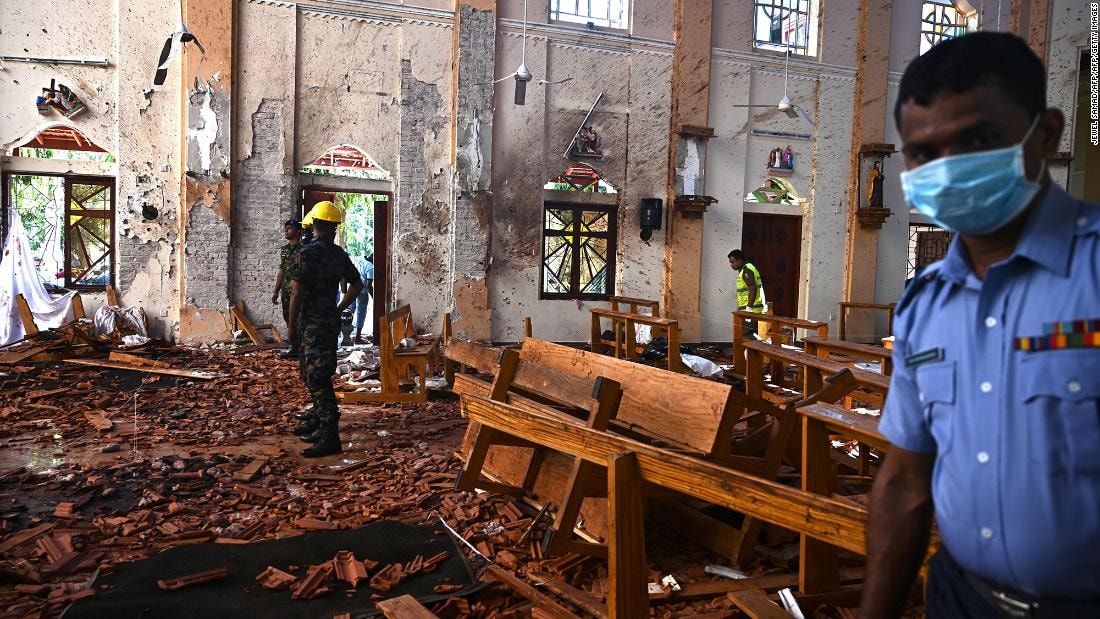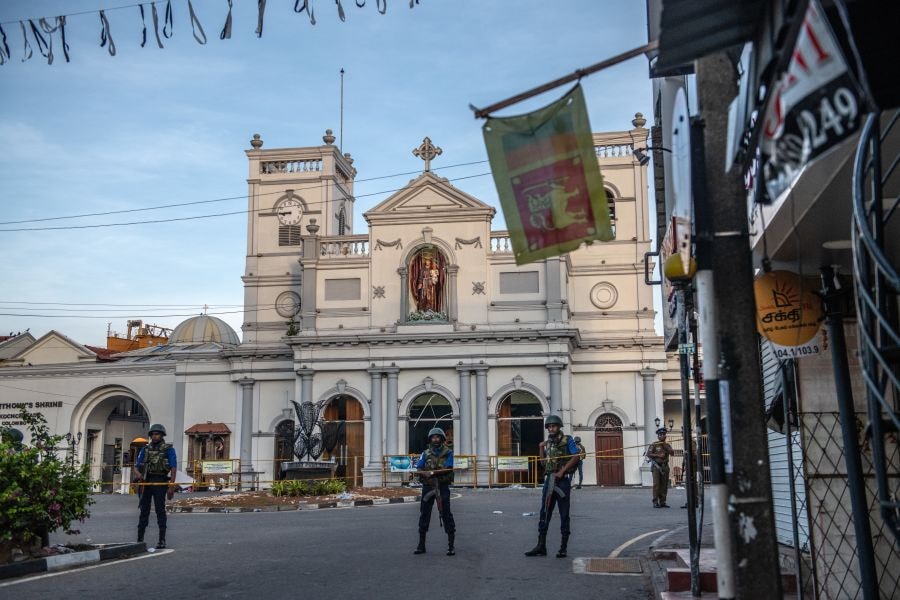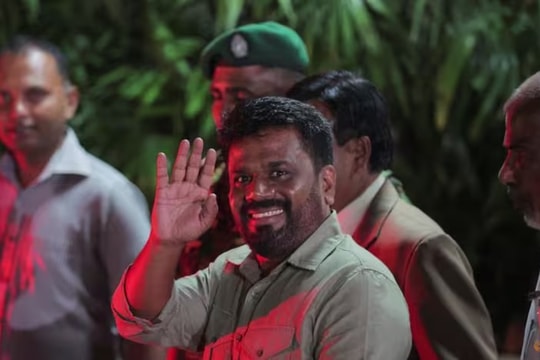Sri Lanka bombings: Terror deepens crisis
(Baonghean) - On April 23, Sri Lanka held a national funeral to commemorate the 321 unfortunate victims who died in a series of terrorist bombings targeting locations in the cities of Colombo, Negombo and Batticaloa.
Many questions have been raised about the ability to grasp information and prevent the bloody tragedy, deepening the political crisis in the South Asian country.
The tragedy was foretold.
When a series of suicide bombings rocked churches and hotels in Sri Lanka on Sunday, much of the country and the world was left stunned and stunned.
But in the capital Colombo, the shocking incident did not come as a complete surprise to everyone. According to multiple news channels, some figures in the Sri Lankan government had been warned of the possibility of an attack weeks earlier.
CNN said that foreign intelligence agencies, including India and the US, informed Sri Lankan officials on April 4 about a plot to carry out suicide attacks targeting Christian churches and tourist sites.
 |
| Security forces search inside St Sebastian's Church in Negombo on April 22. Photo: AFP |
Five days later, the country’s Ministry of Defense informed the head of the police inspectorate about the plot, and named the gang believed to be behind the bloody plan – Nations Thawahid Jaman (NTJ). The notice was so detailed that it even provided a list of suspects.
On April 11, another notice signed by Deputy Inspector General of Police Priyalal Dissanayake was sent to various security agencies and government ministries. This document again emphasized the threat and reiterated the list of suspects.
According to Sri Lankan government spokesman Rajitha Senaratne, foreign security agencies continued to repeat warnings in the days and hours before the attack. But, all to no avail, the worst happened during the Christian Easter holiday.
When suicide bombers entered three Catholic churches in Sri Lanka, and three luxury hotels in the capital Colombo, they did not encounter any security barriers.
And so, while the worshippers closed their eyes in prayer, and hotel guests lined up to enjoy breakfast, the attackers detonated their devices, causing catastrophic consequences.
According to updated figures, as of April 23, 321 people were killed and hundreds more were injured after a series of horrific explosions. Authorities quickly arrested 40 people believed to be involved in the bloodiest incident in Sri Lanka since the country's civil war ended in 2009.
Internal strife
The grief is spreading in Sri Lanka as the country continues to face divisions within the current government, sparked by a constitutional crisis in 2018, when President Maithripala Sirisena sought to replace incumbent Prime Minister Ranil Wickremesinghe with a figure more favorable to him.
Wickremesinghe was then reappointed last December after the intervention of the Supreme Court, but the Sri Lankan government has since been deeply divided.
 |
| Police and soldiers guard a Catholic church in Colombo on April 21. Getty Images |
Regarding the series of attacks on April 21, the country's Minister of Economy Harsha de Silva revealed that Prime Minister Wickremesinghe "was not aware" of previous warnings.
Government spokesman Senaratne also said that Mr Wickremesinghe had been forced out of the national security council late last year and therefore did not receive top-secret security briefings. Even after the attack, members of Sri Lanka’s national security council refused to attend a meeting called by the prime minister.
“I think this is the only country in the world where the security council does not want to appear when the Prime Minister summons it,”
Mr. Senaratne affirmed that he did not believe that a local gang could act alone to cause the recent tragedy, but "there must be a larger international network behind it."
In a statement published by Reuters, President Sirisena affirmed that the Sri Lankan government will seek assistance from other countries in investigating potential international links to the attack.
Mr Sirisena's office has made no comment on whether the warnings were heeded, while allies of the prime minister have insisted that the untold human loss on April 21 was not a failure of intelligence, but a failure to respond appropriately to the information they had.
Retaliation by extremists?
After the Easter shock, all attention turned to the extremist Islamic group NTJ - the name that appeared in previous warning messages.
Many hypotheses have been raised, many questions have not been clarified, revolving around why NTJ - a small-scale group, usually only carrying out incidents such as vandalizing Buddha statues, carried out a series of attacks, this time targeting Catholic churches? Did they have any support, what was their motive?
According to the latest information, speaking before the National Assembly, Sri Lankan Defense Minister Ruwan Wijewardana said that preliminary investigations showed that the series of bombings were carried out by the extremist Islamic group NTJ, in retaliation for last month's attack on two mosques in New Zealand - an event that shocked the world.
In fact, observers say there are many small gangs like NTJ operating in India and East Asia, and NTJ does not have a similar “criminal record” to the recent incident. Perhaps that is also the reason why Sri Lankan authorities turned a blind eye and were not vigilant.
 |
| The political turmoil in the South Asian country of Sri Lanka is also a factor that makes things more complicated. Photo: Google maps. |
Besides, from the catastrophic level of the attack, it is certainly impossible to rule out the role of a larger organization, to coordinate the simultaneous and sophisticated explosions.
But whatever the case, the fact is that Sunday's attacks - which were marked by multiple high-profile targets, suicide bombings and the use of high-yield bombs - were certainly the result of long-term planning.
Therefore, the negligence and subjectivity of local authorities, as they themselves have admitted in missing many dangerous warning signs, will be the subject of criticism in the coming time. Of course, along with that, the chaos in the political arena in this South Asian country is also a factor that makes things more complicated.




